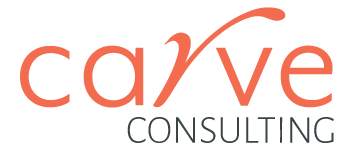It’s frustrating – working so hard, making sure everything is right, keeping your head down and making sure the wheels keep turning, even when there is chaos around you – but when it comes to new opportunities, promotion or broader conversations about development, nothing ever eventuates.
Even though it often feels like we are at the mercy of the organisations, people and events around us, we are ultimately responsible for our own career story. There may be periods in our career when our personal career goals and the organisational goals are aligned, it feels like we’ve struck gold. But the employment relationship is not always long term, sometimes personal and organisational goals only align for a short period. This means we need to recognise when it’s time to be proactive and take our own next step.
There are two aspects to a persons career trajectory – the individual’s capability and the vehicle (employer) they choose. When both are travelling in the same direction and in alignment, great things can happen. But what if they’re not?
Organisations may offer development programs but it’s a fallacy to hand responsibility and trust for your career over to your organisation. Your goals and timing may not align with their strategy. The same can be said for leaving career decisions to a manager or HR. They may have different priorities or don’t have the resources to develop your potential.
So what can you do to take control of your career?
Speak up and ask for what you want
By far the most common reason your career can stagnate is because you are waiting for someone to notice you and reward your hard work with opportunity. Taking the “hope they notice me” strategy creates one of two outcomes:
- Stagnation in the same role, or
- the opportunities align with what the organisation needs filling, which may not necessarily be the career path you want to follow.
Get clear on what you want, the skills and experience you want to develop, and where you hope it will lead. Then, ask the right people how this may be possible. Make sure the organisation knows what you’re looking to do and you are connected to key people in the organisation.
Are you clear on the skill gap?
Promotion doesn’t automatically follow hard work. I hear this particularly in large organisations, where there can be an expectation of promotion after a period in a role. To be considered for the next step, focus on demonstrating the right capabilities for where you want to go next. It’s easy to miss our own blind spots, particularly behavioural ones. If you want to take a step up or across to a new functional area, understand behavioural competencies required for the role, whether others see that in you, and how to develop those competencies. Get a few opinions, people can only recognise what they already understand.
So busy doing, no capacity for development
It’s easy to get so busy delivering in your role that you don’t have capacity left to share new ideas, collaborate effectively, or be visible and network within the organisation. To be considered for a new opportunity, show that you have spare capacity to be stretched. Sometimes being busy is due to the role design, sometimes it’s our habitual way of working.
If you’ve stopped learning in your role but find yourself working to and beyond capacity, look at whether it’s due to the role design. It might be time to ask for help or to change how you work to find a more efficient approach.
If you’re feeling frustrated, is it showing up in your communication?
Resentment is the number one killer of healthy relationships, and that is true of work relationships too. If you feel you’ve stagnated and are feeling resentful of other people’s success or starting to distrust managers above you, be aware that this will be coming across in your communication. You may not be aware of it but if you’re thinking and feeling regularly, then it will show up in what and how you communicate.
If you’re clear on what you want and you’ve had productive conversations with the right people, then there are two choices. Explore if there is a real opportunity to develop within your organisation or start look externally.
There are also flags to know when it may not be the right fit anymore
The organisation or manager likes the role you fill and doesn’t want it to change
Do you regularly hear, ‘we understand what you’re looking for but we just need you to focus on this right now’. There will always be change and crisis’ to fix. But if the crisis ignores the aspirations and development of the employees, then ultimately people will find opportunities elsewhere.
Leadership can’t see your potential
There is a meme about a vintage car where one car-yard will pay a small amount, while the car collector will pay thousands. If you are clear on what you want and have the capability, choose to work where you are valued. If the signs are there that your manager or leadership aren’t going to invest in your development, then it’s time to find another employer for which you are more aligned. It may be due to the organisation’s culture, management clichés, or you’re not visible or known for what you’re capable of.
The organisation structure is stagnant and there are no opportunities to do new things
Even with the best employer, where you’ve had a great experience, when you stop being challenged and learning, you can quickly become bored and feel frustrated. Organisations can also become stagnant. When there’s no appetite for innovation or everyone is entrenched in their roles and there is no sign of change, maybe it’s time to close that chapter and look for a new opportunity.
If you’re feeling frustrated in your current role, explore the actions you can take to change your circumstances. Ask if it is time to find a new vehicle to take you on your career journey.

